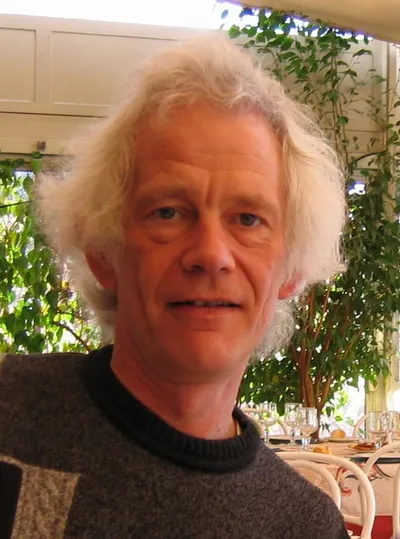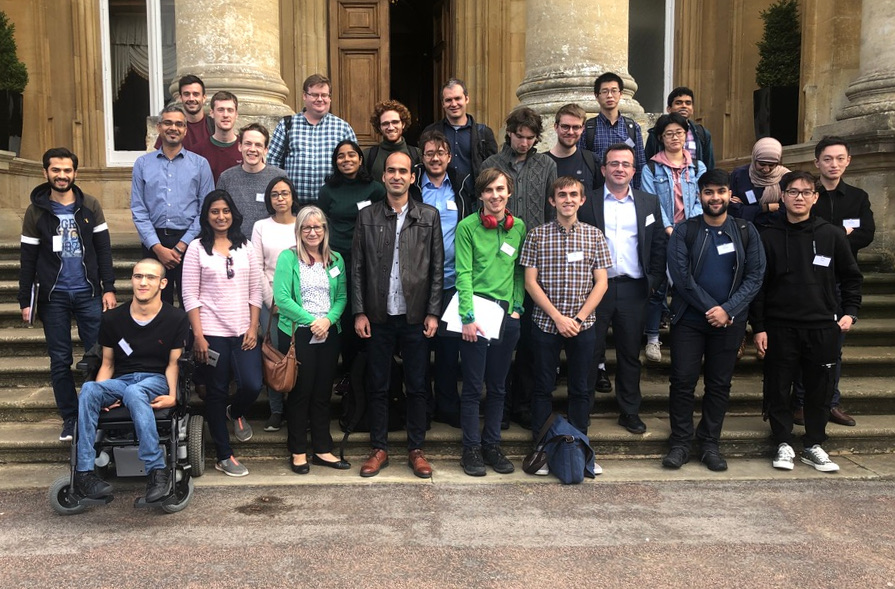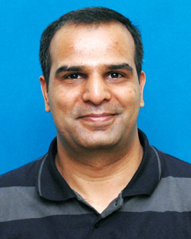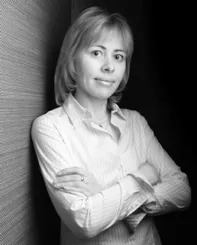Computer Science News
In memoriam: Emeritus Professor Roland Wilson
 It is with great sadness that we report that Professor Roland Wilson passed away on 19 November 2019. He joined the Department of Computer Science as Senior Lecturer in 1985, becoming Reader in 1992 and Professor in 1999, serving as Head of Department from 2006 to 2009, and retiring to Emeritus Professor in 2010.
It is with great sadness that we report that Professor Roland Wilson passed away on 19 November 2019. He joined the Department of Computer Science as Senior Lecturer in 1985, becoming Reader in 1992 and Professor in 1999, serving as Head of Department from 2006 to 2009, and retiring to Emeritus Professor in 2010.
Professor Wilson was one of the world's foremost experts in image processing leading one of the UK's largest image processing groups, at the University of Warwick. He conducted image processing research at an international level for more than 30 years, publishing over 130 papers, and supervising over 20 PhD students to completion. He was jointly awarded the 1985 Pattern Recognition Society medal for best paper in the journal Pattern Recognition.
Roland was renowned for his deep knowledge and understanding of signal and image processing and information theory and was one of the earliest proponents for the idea of multiscale image analysis, an idea common place in modern artificial neural networks. This led to some break-through works in image representations, including spatial/spatial-frequency representations such as the multi-resolution wavelet transform (MFT) for which he and his many PhD students were able to show to have numerous useful applications from image restoration, object detection, image segmentation and music transcription. Many of his ideas developed from interests in the working of the human visual system and further inspired by his long and fruitful collaboration with colleagues from the University of Linkoping, Sweden, Gösta Grunland and Hans Knutsson. This had begun during a visit to Linkoping in the early 1980s.
At Warwick, Roland taught probability theory, digital signal processing (with colleagues from Engineering) and neural computing for many years. Even up to this day, his neural computing course (which he first taught in the early 1990s, way before the current fashions in machine learning) continues to be hugely popular. On it he showed students not only the mathematics and principles of artificial neural networks, but also how it is understood our brains perform computation for perception and how memory works. Roland had a great passion for this subject and a unique and profound understanding of it, having read widely in neuroscience and neurophysiology. Over the years, he has been an inspirational teacher to many hundreds of Warwick computer science graduates.
In 2006 Roland co-founded a University spin-out tech company (Warwick Warp) to apply his ideas on image analysis to the challenging problem of fingerprint matching. He used his knowledge and ingenuity to solve the problem of fast and accurate fingerprint matching and this led to a set of novel methods. These were later patented and a software implementation was bench-marked in 2010, ranking in the world's top three commercial fingerprint matching solutions. The algorithm he devised are being used to this day for humanitarian work with the UNHCR and in a commercial setting for access-control at numerous construction sites in the UK. In 2010, he decided to take part-retirement and to focus more on commercial research, enjoying the challenge of the need to create practical solutions within the constraints of speed and data storage.
Roland was a wonderfully supportive father and grandfather and will be greatly missed by family, friends and colleagues. Our deep condolences are sent to his children Neil and Katy, and grandchildren, Robin, Sam, Charlie and Isla.
Colleagues and friends are invited to attend a celebration of Roland's life at Cannon Hill Chapel, Canley Crematorium, Friday 13 December at 10:30am.
CS PhD Welcome Event

The Department organised an off-campus induction event for the new PhD students in our Centre for Doctoral Training and Research. The agenda included presentations from academics on our large research projects, alongside short tutorials on theoretical computer science and advanced machine learning. There were also informal talks about PhD life, publishing high quality work, and pursuing a research career. The event concluded with a mini data dive using air quality data from London.
The two-day welcome event was held at Heythrop Park in Oxfordshire, which offered the students and academics the opportunity to meet each other in a relaxed environment. The students also met with some of the current PhD students and asked them about their experiences. The programme was very productive with overwhelmingly positive feedback.
We welcome our new cohort of PhD students and look forward to organising similar events across the coming years.
Dr Fayyaz Minhas joins the department as an Assistant Professor

Dr. Fayyaz Minhas (Fayyaz, pron. FAY-YAZ) has recently joined the department as an Assistant Professor. He will be associated with the Tissue Image Analytics (TIA) lab in the Applied Computing division, and will also be working closely on the PathLAKE project.
Prior to joining Warwick, Dr. Minhas worked as a Principal Scientist at Pakistan Institute of Engineering and Applied Sciences (PIEAS), Islamabad, Pakistan since 2007. He has over 8 years of experience of teaching and research in computer science and has taught courses on Machine learning, Bioinformatics, Quantum Programming, Artificial Intelligence, Cancer Bioinformatics, Computational Biomolecular Design, Biometrics, Python Programming, etc. At PIEAS, he was the Principal Investigator of PIEAS Biomedical Informatics Lab as well as PIEAS Data Science Lab. Dr. Minhas is a recipient of the Fulbright scholarship for his Ph.D. in computer science at Colorado State University, USA. Dr. Minhas works on solving problems in biology and medicine using machine learning methods as well as the development of bespoke machine learning algorithms in the domains of biomedical informatics and data science.
At Warwick, Dr. Minhas will be working closely on the PathLAKE (Pathology image data Lake for Analytics, Knowledge and Education) project and is interested in exploring the development and application of machine learning models for integrating cancer pathology and bioinformatics data for improved diagnosis and personalised treatment of cancer.
He loves to work in a collaborative multidisciplinary research environment and keeps his office door open for colleagues, students and friends. He also likes to play volleyball, read poetry and is ever ready to talk about hiking trails in the American Midwest and the north of Pakistan.
Dr Minhas’ academic profile can be accessed at the URL: https://sites.google.com/view/fayyaz/home
MRC funding success for Dr Yulia Timofeeva
 We are happy to announce that Dr Yulia Timofeeva from the department's Applied Computing research theme has been awarded a Medical Research Council grant to develop a modelling framework and computational tools for studying synaptic transmitter release in health and disease. The £475K project will run in close collaboration with the laboratory of Professor Kirill Volynski at the UCL Queen Square Institute of Neurology as well as other world-leading experimental laboratories in Europe, USA, Canada and Japan, specialising in state-of-the-art research in synaptic transmission.
We are happy to announce that Dr Yulia Timofeeva from the department's Applied Computing research theme has been awarded a Medical Research Council grant to develop a modelling framework and computational tools for studying synaptic transmitter release in health and disease. The £475K project will run in close collaboration with the laboratory of Professor Kirill Volynski at the UCL Queen Square Institute of Neurology as well as other world-leading experimental laboratories in Europe, USA, Canada and Japan, specialising in state-of-the-art research in synaptic transmission.
